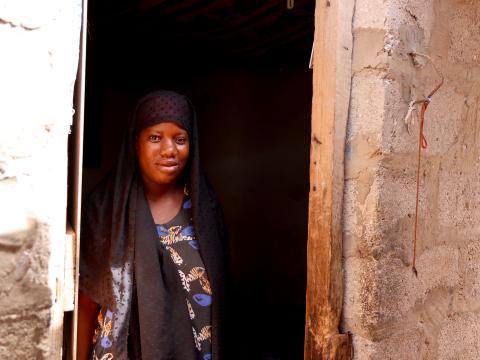Fatimatah, married at just 12

Fatimatah grew up in one of the poorest suburbs of Noukachott, the capital of Mauritania, and was just 12 years old when she got married. Her father’s friend had taken an interest in her, and even though she argued against it, her father decided she should marry.
“I was in my second year of college,” Fatimatah remembers sadly. “They didn't let me finish school. I really didn't want it. I wanted to finish my studies, but they forced me into this.”
In Mauritania, approximately 37% of girls are married before the age of 18, and 18% are married before their fifteenth birthday, even though the minimum legal age of marriage is 18 years with no exceptions. Zeynabou Cheikh works for a local organization in Noukachott that World Vision has partnered with, and sees many families like Fatimatah’s who marry their girls off early.
“Parents here don’t work or can’t earn a lot of money. When someone comes, they ‘give’ their daughter without hesitation, because they want to decrease the number of mouths to nourish in the family.”
“What makes some parents in the community marry our daughters? Poverty, plain and simple. We wish our daughters to complete their studies, to become valuable in society, but we do not have the means to help them do that in this neighbourhood.”
“There are still people who ignore the advice against child marriage. Their argument? ‘How will you help me get food for her? Dress her? Educate her?’”
Although many parents may see marriage as a way to increase girls’ economic prospects, once married, girls feel stuck and are left facing a new range of challenges. Fatimatah had her first child when she was still a child herself, at just 15. “My first months of marriage were very stormy. I regularly ran away from my marital home, but after I had my first child, what else could I do but stay still?”
Today Fatimatah works selling donuts on the roadside, trying to earn enough to support her four children. Sometimes she trades her sweets for flour to cook at home, and other times she manages to make back her money plus a small profit, but daily life is a struggle to make ends meet.
“You know that someone who has children, in my condition, cannot save,” Fatimatah explains. For now, her focus is on trying to provide for her children, but she dreams of being able to go back to school and maybe train as a professional party chef one day.